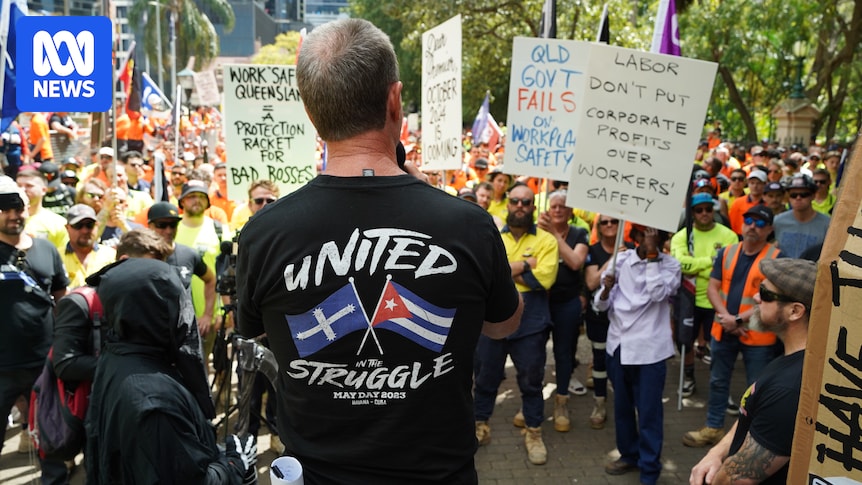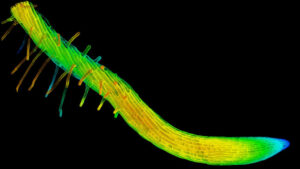
Violence, intimidation, misogyny, and bullying—these are the shocking allegations outlined in a damning report scrutinizing the Queensland branch of the Construction, Forestry, Maritime, Mining and Energy Union (CFMEU). The report, released this week, has once again thrust the militant union into the spotlight, a position it has occupied frequently over the past decade due to various controversies.
The report, authored by barrister Geoffrey Watson SC, paints a grim picture of the union’s internal culture. However, the CFMEU is no stranger to controversy, having faced scrutiny for more than a decade. The union’s history is peppered with allegations of misconduct and high-profile protests that have captured public attention.
Protests and Political Tensions
More than a decade ago, a royal commission public hearing into the CFMEU in Brisbane drew protests from several hundred union members who claimed the inquiry was politically motivated. In a show of solidarity, CFMEU secretary Michael Ravbar was famously hoisted onto the shoulders of protesters, a moment that symbolized the union’s defiance.
Today, Ravbar finds himself at the center of the latest allegations. The report attributes much of the blame for the alleged toxic culture to his leadership, a claim he has vehemently denied. Ravbar has dismissed the report’s findings, labeling them as “riddled with errors” and based on “selective and untested accounts.”
Historical Allegations and Legal Battles
The royal commission also heard serious allegations against the union’s top brass, including then-president David Hanna. Hanna stepped down in 2015 following accusations of benefiting from $150,000 worth of free work on his house, with tradesmen allegedly billing the work to developer Mirvac.
In 2018, Hanna was found guilty of dumping and burning documents that could have been crucial to the commission’s investigation. Although he avoided jail for this offense, he was later sentenced to two years in prison for receiving $161,000 in home renovations paid for by Mirvac. At the time, he was already serving a six-year sentence for rape.
Union’s Political Maneuvering
In 2019, the CFMEU made headlines again with mass protests outside Queensland’s Parliament House. The demonstrations were aimed at then-deputy premier Jackie Trad over the handling of the Cross River Rail project. Ravbar warned that the Labor government would lose the union’s support unless Trad resigned. When this did not occur, the union parted ways with Labor’s left faction just two months before the state election.
Griffith University political commentator Paul Williams described the split as a significant turning point, stating,
“Clearly the CFMEU’s voluntary separation from the Queensland Labor Party, particularly the left faction in 2020, is as symbolic as ever. It’s sort of like they ditched their only friend.”
Escalating Protests and Government Response
Tensions continued to rise in 2022 when union members stormed the Transport and Main Roads building in Brisbane, leading to a lockdown. The report details how a security guard was knocked to the ground during the protest, although he was not seriously injured. Then-premier Annastacia Palaszczuk condemned the behavior as “disgraceful” and declared she would no longer meet with the union.
The following year, CFMEU protests became increasingly destructive. In April 2023, approximately 5,000 members marched on the Commonwealth Parliament Offices, resulting in damage to the building’s glass doors, estimated at $25,000. The protest aimed to pressure the federal government to abolish the Fair Work Ombudsman, which was prosecuting the CFMEU for numerous breaches.
Union Administration and Future Implications
In July 2024, the Federal Government placed the Construction and General Division of the union into administration, citing allegations of links to crime syndicates and bikie gangs in Victoria. This move was part of broader claims of bullying, intimidation, and corrupt conduct within the union. Queensland Labor premier Steven Miles subsequently announced that he would no longer accept political donations from the CFMEU while it was under investigation.
The union challenged the administration decision, but it was upheld by the High Court, sparking further protests across the nation. Despite the legal setbacks, the CFMEU remains a powerful force in the labor movement, and its future actions will likely continue to influence the political landscape.
As the union grapples with these latest allegations, the report has been referred to Queensland police for further investigation. The CFMEU’s leadership, particularly Michael Ravbar, continues to reject the findings, arguing that the union’s culture cannot be solely attributed to his leadership.
The unfolding situation raises questions about the future of the CFMEU in Queensland and its role within the broader Australian labor movement. As investigations proceed, the union’s ability to reform and address the allegations will be closely watched by both supporters and critics alike.






